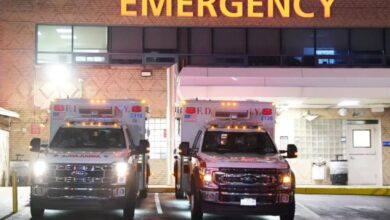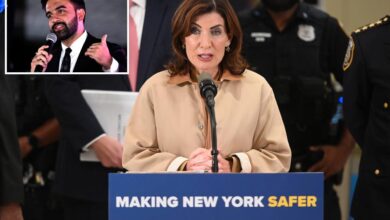Luigi Mangione ‘Can Claim a Legal Victory’ But Still Faces Uphill Battle: Former Prosecutor
:max_bytes(150000):strip_icc():format(jpeg)/Luigi-Mangione-Appears-In-Court-For-State-Hearing-091725-89eb8eff7cbf4920814096bf13f3eef1.jpg)
NEED TO KNOW
- A New York judge dismissed two terrorism charges against Luigi Mangione
- Judge Gregory Carro said he had found the evidence behind the charges “legally insufficient”
- The judge kept other charges in place, including a count of second-degree murder
Luigi Mangione, the man accused of killing UnitedHealthcare’s CEO last year, secured what a former Manhattan prosecutor called a legal win Tuesday, Sept. 16, after a New York judge dismissed two terrorism charges in his state case.
“Mangione can claim a legal victory today, and yes, it is,” Gary Galperin, an adjunct professor at Cardozo School of Law in New York, said in an interview shortly after the judge’s ruling. “But this is far from over.”
Judge Gregory Carro, who is overseeing Mangione’s sate case, kept other charges in place, but his ruling eliminated the two top charges, including a first-degree murder count that could have sent him to prison for life.
Prosecutors had also charged Mangione with second-degree murder in furtherance of terrorism, the other count that was dropped. Mangione, 27, is also facing a parallel federal prosecution that could land him the death penalty. He has pleaded not guilty to both state and federal charges.
“While the defendant was clearly expressing an animus toward UHC, and the health care industry generally, it does not follow that his goal was to ‘intimidate and coerce a civilian population,’ and indeed, there was no evidence presented of such a goal,” Carro said in his written decision.
Galperin, a 40-year veteran prosecutor in the Manhattan DA’s office, said it made sense the judge ruled the healthcare company’s employees didn’t constitute a “civilian population.”
“Here, the judge found, and I think logically, that the employees of UnitedHealthcare would not constitute a civilian population. These are employees. These are not inhabitants of a given region or members of a particular racial or ethnic group, which is what the statute is designed to cover.”
Mangione’s attorneys did not immediately return a request for comment for this article. They had argued that the district attorney’s office had “expanded New York’s terrorism statute well beyond its legislative intent and its natural and legal definition to seek enhanced charges against” Mangione.
The judge also decreed there was insufficient evidence Mangione was attempting to influence government policy through his alleged actions, another element of terrorism charges.
Mangione is accused of gunning down UnitedHealthcare CEO Brian Thompson on Dec. 4, 2024, outside a Midtown Manhattan hotel. The killing was captured on surveillance cameras. Mangione was arrested days later at a McDonald’s in Altoona, Pa.
“This is somewhat of an unusual case,” Galperin says, in the sense that Mangione is alleged to have targeted the CEO, Brian Thompson, “in order to draw attention to what he perceived to be inequities in the healthcare system, the greed of the healthcare system, and particularly UnitedHealthcare.”
A notebook authorities allegedly recovered from Mangione allegedly described his intent to “wack” an insurance executive. The writings will be used to argue a motive, Galperin says.
The second-degree murder prosecution can move forward, Carro ruled, because the DA had “presented sufficient evidence that Mangione ‘murdered Brian Thompson in a premeditated and calculated execution.'”
“The Manhattan DA’s office had, I think, a good-faith basis to think in terms of acts of terrorism, and indeed, they got a grand jury to vote the acts of terrorism,” Galperin says. “However, I think the judge’s dismissal is well reasoned and well founded.”
A spokesperson for Bragg’s office said in a written statement Tuesday, “We respect the Court’s decision and will proceed on the remaining nine counts, including murder in the second degree.” For that charge alone, Mangione faces a sentence of 25 years to life if convicted.
“I prosecuted many murder cases, and this is very much an uphill battle,” Galperin says. “What would be a viable defense for him?”
Credit to Nypost AND Peoples



